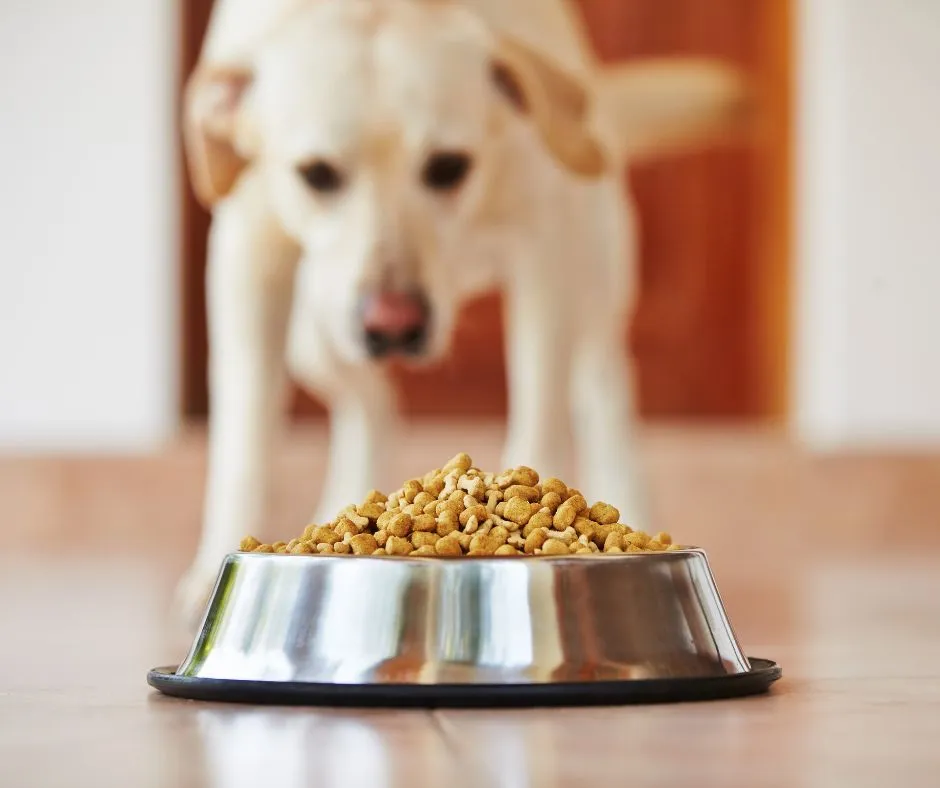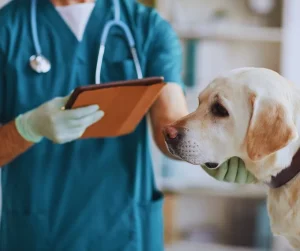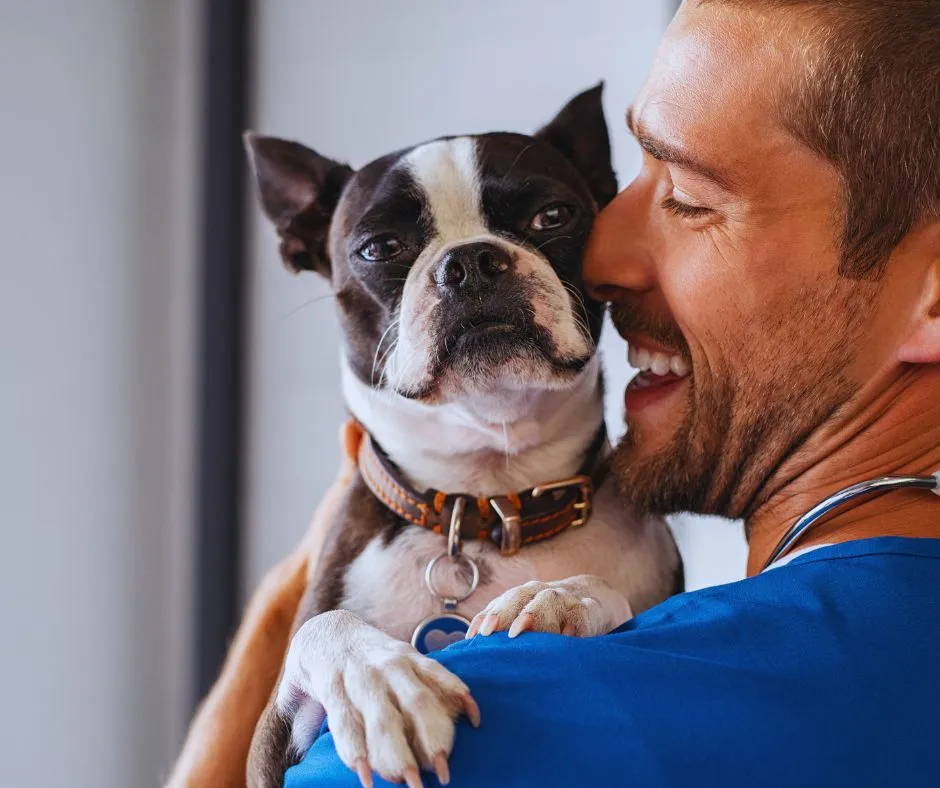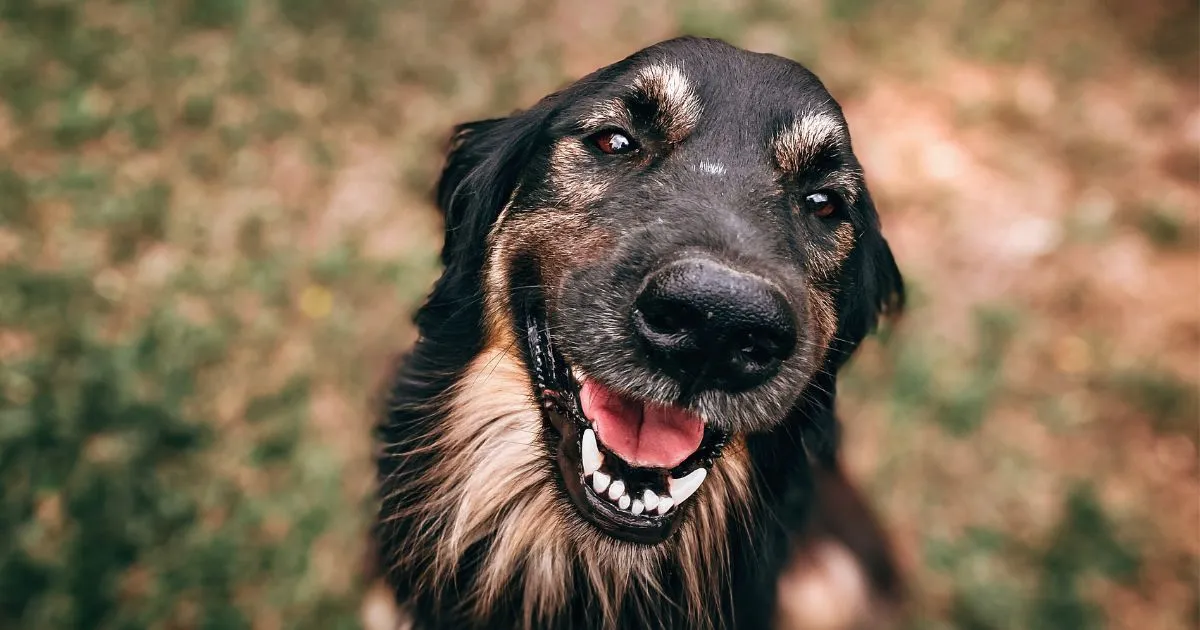Symptoms of Food Allergies in Dogs

Which Food Allergies in Dogs often require?
Food allergies in dogs are the outcome of immune system reactions to particular foods. Dairy, wheat, and proteins which includes beef and chicken are common allergens. All kinds of symptoms arise from an aberrant immune response in a dog that swallowed these substances as part of a food allergy. These could consist of skin troubles, gastrointestinal issues, and itching. Blood tests and diets without grains are common methods for identifying food allergies. To try and reduce those allergies, the standard treatment is to avoid allergenic products. Your veterinarian can help you choose an allergenic diet that is suitable for your dog. Effective management requires routine veterinary monitoring.
10 Common Symptoms of Food Allergy in Dogs

1. Itching and Scratching:
It’s possible that your dog scratches because it is allergic to something it ate. Because this itching is so painful for your dog, he wants to get rid of it by scratching a lot. If they do this to feel better, it could make things worse. In addition to causing pain, scratching your dog can make them more likely to get new diseases. If the dog doesn’t get help, they can make it look and feel even worse. Therefore, dog owners should carefully watch their dogs for these signs and quickly take their pets to the vet. Data and tests can help a professional figure out what’s wrong. This will help them come up with a good treatment plan. It will feel better and not have any more health problems if you change the thing that your dog is allergic to.
2. Skin Irritations:
Having an allergic reaction can lead to many different skin problems. Most of the time, people feel itchy. Rakes, bumps, and itching can be annoying or even hurt. Redness can be very mild or very bad. Because these foods make these signs happen, the body doesn’t like them. Things that your immune system thinks are dangerous are making it react. When you work with allergens, remember that responses can happen quickly or slowly. If you want to find the allergens that are making your dog sick and get rid of them effectively, you should keep your dog and see a veteranarian.
3. Digestive Anxiety:
That dog might have trouble eating if it is allergic. Pet owner should think about this. Such things do happen, but your dog could also be in a lot of pain, suffer from gas, or be bloated. Therefor, when a dog’s immune system thinks that a food ingredient is harmful, it responds strongly, which is not good. As a result, they were tired, irritable, and didn’t enjoy regular things as much, which was bad for their health in general. Understanding these signs will help you decide what to feed your dog and what to speak with your vet about them. Doing this will help you take the best care of your dog. Taking care of their dogs well requires performing these things.
4. Ear Infections:
Dogs who get ear infections a lot could have an allergic to particular foods, resulting in the dog extremely ill and upset. Such actions can cause a lot of pain, so the dog might shake its head or scratch its ears extremely hard in order to alleviate the pain. Some of these dogs behave indicates very clear that they may be sick and need medical help immediately. If a dog has a food allergy, it may not only obtain ear infections, but also skin irritations which make it uncomfortable every where. Identifying the allergens in the dog’s meals and eliminating them out is very important for making the dog’s life better and soothing these symptoms.
5. Chronic Diarrhea:
Food allergies happen more often than most people think, and having diarrhea a lot can be a big sign that someone has them. For a lot of people, such substances are safe, but the body thinks they are allergens that are dangerous. In order to protect itself, the body’s immune system indicates these things to get out of the body as soon as possible. When your dog go to the bathroom, which generally means they have diarrhea, their body’s natural defense system goes into action. Dogs who have this reaction know for sure that it means they ate something that is bad for their health. It hurts and can be really bothersome at times. This irritable response indicates that the body knows when something is wrong and sends a message to the person to pay attention and maybe find the allergens that are making them sick.
6. Vomiting:
Your dog might have a bad reaction if it eats something this is allergic to. Some animals may vomit or have other signs. Within this process, it gets ready to get rid of things that the body thinks are bad for it. Occasionally, dogs eat things that are bad for their stomachs, and their immune systems get too strong. Many people might think these pieces of food are germs or drugs, which are both very risky. When this happens, the body’s defenses start to work. One of these alerts the digestive system to reject the drugs and get rid of them. A dog’s body gets rid of things it thinks are dangerous but aren’t in order to keep them safe. Definitely hurts, but you know it’s doing its job.
7. Poor Coat Condition:
Probably, your dog’s rough, dry, or dull skin is triggered by food allergies. For the most part, the coat isn’t healthy for them. The health of hair might not be as good if it doesn’t get enough of some nutrients or doesn’t like specific elements. Changes to the skin’s natural oils make the coat look less soft and shiny. As soon as you notice that your dog is sick or tired due to something in its food, you need to take action.
8. Chronic Anal Gland Problems:
Dog anal glands can hurt for a while if they digest bad food. These actions can make it hard for dogs to go to the bathroom because their glands get red and swollen. Sores or illnesses that could hurt the anal gland shouldn’t happen to your dog. As quickly as possible, take care of these issues. This is why fixing them might cost more. Dog owners must carefully watch what their pets eat to guarantee their health and safety.
9. Lethargy:
If your dog looks tired all through the day or lacks plenty of energy, they may have food allergies. Anytime a dog has these kinds of allergies, their body might not respond well to certain foods. This can really hurt their health and activity level. As a result of this reaction, dog experienced tired all the time, unwilling to play or do things they used to enjoy, and noticeably less energetic on a daily basis. Understanding these early symptoms can help treat the dog’s food allergies, which are making its health worse, and make its life better.
10. Changes in Behavior:
Dogs that are allergic to certain foods may have health problems and act in totally different ways. Because food allergies can be very painful and uncomfortable for pets. Owners may not instantly connect negative behaviors like irritability, aggression, or anxiety with food allergies. Watch your dog carefully if his behavior changes. Your pet may need to have their diet changed because this could be a sign of a greater health problem, like food allergies, that needs to be looked at more closely.
How Veterinarians Identify Food Allergies in Dogs

Veterinarians utilize a variety of processes to find out food allergic reactions in dogs.
- Elimination Diet: This is a limited diet that uses new sources of protein and carbohydrates. Based on the dog’s reaction, gradually introducing past foods aids in detecting allergies.
- Hypoallergenic Diets: Specialized hypoallergenic commercial diets with different sources of protein and carbohydrates can help identify food allergies.
- Food Trial: In a strict food trial, a new diet is fed exclusively for a few weeks while symptoms are observed to see if they improve. This aids in determining whether to include food allergies.
- Blood Tests: Specific antibodies are determined in allergy blood tests to figure out a person’s sensitivity to various meals. Although beneficial, results might not always match with clinical symptoms.
- Skin Testing: To monitor responses, tiny doses of possible allergens are injected below the skin during internal or patch testing. This approach has limited use for diagnosing food allergies.
A dog with suspected food allergies need to consult with a veterinarian to get a complete diagnosis and management plan.
Homemade Dog Food Easy Recipes for Allergies
Homemade dog food recipes for allergies use simple, naturally digested ingredients. To avoid major allergens, they generally contain lean meats like chicken or turkey and simple carbohydrates like sweet potatoes or rice. Supplements and vegetables give a diet additional nutrients. We design these recipes to minimize the possibility of allergy reactions by avoiding grains and other artificial ingredients. To ensure that the recipes are customized to your dog’s unique concerns and that they are receiving all the nutrients they need for good health, it is crucial to consult with a veterinarian. Frequent veterinary check-ups assist in maintaining the diet and overall wellness of your pet.
Tips for Preventing Food Allergies in Dogs

If dogs eat a healthy, well-balanced diet, they won’t get food allergies. When you first start introducing something new, you should do it gradually and carefully. The chance that your dog will get allergies goes down with every grain and protein it eats.
Vets frequently recommend to choose easy recipes when they talk about good dog food. There may be less poison in these foods because they don’t have as many chemicals. Helps you figure out what’s wrong with your dog.
You should take your pet to the vet as often as possible to get allergy tests. These tests can help you figure out what things make your symptoms worse so you can stay away from those.
Writing down everything your dog eats is also a good idea. They need to keep track of what they eat and how it makes them feel. Keep track of what they eat to find out what things are making them sick. If you want your dog to be happy and healthy, you should watch out for and avoid food issues with them.
FAQs
Q1: How can I determine food allergies in dogs?
Keep an eye out for symptoms of food allergies in your dog, which include diarrhea, vomiting, or chronic itching. If such symptoms occur, consult a veterinarian They may conduct testing, such as allergy or elimination diets, to identify particular allergens and suggest a suitable diet.
Q2: When do dogs begin to have food allergies?
While food allergies may affect dogs at any age, the majority of the time, symptoms begin between the ages of six months and five years. Later in life, sensitivity may manifest. Food allergies can develop as a result of a combination of environmental causes, genetic traits, and repeated use of specific ingredients.
Q3: How do dogs with food allergies get treated?
To identify and treat dog food allergies, you must remove the allergen from the dog’s food. Changing to foods with fewer ingredients or hypoallergenic recipes, as well as taking probiotics and omega-3 fatty acids, can assist alleviate signs. For an accurate diagnosis and to treat you appropriately, you must consult a veterinarian.
Q4: How can I identify whether my dog has a grain allergy?
Look for symptoms like as itching, diarrhea, or ear infections to determine whether your dog is allergic to grains. See a veterinarian if these symptoms don’t go away. If you have any concerns about a specific allergen, such as grains, they could recommend an elimination diet or allergy testing.
Q5: Can you get rid of a dog’s food allergy?
Food allergies in dogs can not be cured, but they can be managed by identifying and avoiding allergens, feeding a balanced diet, and treating signs. Veterinary professionals may suggest hypoallergenic diets, vitamins, and other methods to reduce discomfort and improve the health of the dog.




